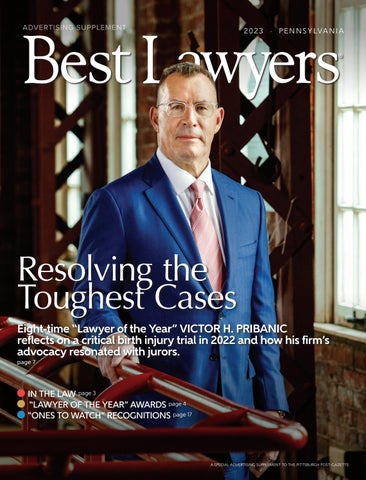Work-Related Car Accidents: What You Need to Know
Imagine this: you’re driving to a work meeting when suddenly, another car slams into yours. You’re injured, and your car is totaled. What now? You’ve just been in a work-related car accident, and you need to know what to do next.
What is a Work-Related Car Accident?
A work-related car accident is any accident that occurs while you are driving for work purposes. This can include driving to or from work, driving to a work-related meeting, or driving on behalf of your employer.
Work-related car accidents can happen to anyone, regardless of your job title or industry. However, some jobs are more likely to involve driving, and therefore, more likely to result in a work-related car accident. These jobs include:
- Delivery drivers
- Sales representatives
- Field technicians
- Construction workers
- Police officers
- Firefighters
- Paramedics
What to Do After a Work-Related Car Accident
If you’re involved in a work-related car accident, it’s important to take the following steps:
- Pull over to a safe location.
- Check for injuries. If you or anyone else is injured, call 911.
- Exchange information with the other driver(s) involved in the accident.
- Take photos of the accident scene.
- Get a copy of the police report.
- Report the accident to your employer.
- Seek medical attention, even if you don’t think you’re injured.
- Keep a record of all your expenses related to the accident.
- Contact a lawyer if you have any questions about your rights.
Who is Liable for a Work-Related Car Accident?
The liability for a work-related car accident can be complex. In general, your employer is liable for your injuries if the accident was caused by their negligence. However, there are some exceptions to this rule. For example, you may not be able to recover damages from your employer if you were intoxicated or driving recklessly at the time of the accident.
What Benefits Can I Receive After a Work-Related Car Accident?
If you are injured in a work-related car accident, you may be entitled to workers’ compensation benefits. These benefits can include:
- Medical expenses
- Lost wages
- Disability benefits
- Death benefits
How Can I Prevent a Work-Related Car Accident?
There are a number of things you can do to prevent a work-related car accident, including:
- Obey the speed limit.
- Be aware of your surroundings.
- Don’t drive while distracted.
- Take breaks when you’re tired.
- Make sure your vehicle is in good working condition.
By following these tips, you can help reduce your risk of being involved in a work-related car accident.
What is a Work-Related Car Accident?
A work-related car accident is any accident that occurs while an employee is driving a vehicle for work purposes. This can include accidents that happen while the employee is driving to or from work, as well as accidents that happen while the employee is on the job.
Take John, for example. He’s a delivery driver who was recently involved in a car accident while making a delivery. John’s accident is considered work-related because it happened while he was driving a vehicle for work purposes.
What Are the Different Types of Work-Related Car Accidents?
There are many different types of work-related car accidents. Some of the most common types include:
- Collisions with other vehicles
- Pedestrian accidents
- Bicycle accidents
- Motorcycle accidents
- Single-vehicle accidents
The type of work-related car accident will depend on a number of factors, including the type of work the employee is doing, the location of the accident, and the time of day the accident occurred.
What Are the Causes of Work-Related Car Accidents?
There are many different causes of work-related car accidents, such as:
- Driving while distracted
- Driving while fatigued
- Driving under the influence of alcohol or drugs
- Speeding
- Reckless driving
- Poor road conditions
- Vehicle defects
Many work-related car accidents are caused by a combination of factors. For example, driving while fatigued and speeding can significantly increase the risk of an accident.
What Are the Consequences of Work-Related Car Accidents?
The consequences of a work-related car accident can be significant. These consequences can include:
- Physical injuries
- Property damage
- Lost wages
- Medical expenses
- Legal liability
In some cases, a work-related car accident can even be fatal.
What Can Be Done to Prevent Work-Related Car Accidents?
There are a number of things that can be done to prevent work-related car accidents, including:
- Employers can provide training to employees on safe driving practices.
- Employers can create and enforce policies that prohibit distracted driving, fatigued driving, and driving under the influence of alcohol or drugs.
- Employers can provide safe vehicles for employees to drive.
- Employees can take steps to drive safely, such as avoiding distractions, getting enough sleep, and never driving under the influence of alcohol or drugs.
By taking these steps, we can help to prevent work-related car accidents and keep our employees safe.
Work-Related Car Accidents: A Serious Problem with Hidden Consequences
Have you ever been involved in a car accident while on the job? If so, then you know firsthand how devastating it can be. Not only do you have to deal with the physical and emotional trauma of the accident itself, but you also have to worry about the financial consequences.
Depending on the severity of your injuries, you may be unable to work for weeks, months, or even years. This can put a major strain on your finances, and it can also make it difficult to provide for your family. In some cases, a work-related car accident can even lead to permanent disability.
What are the Common Causes of Work-Related Car Accidents?
There are many different causes of work-related car accidents, including:
-
Distracted driving: This is one of the leading causes of all car accidents, not just work-related ones. When you’re driving, it’s important to focus on the road and nothing else. However, many people get distracted by their cell phones, their GPS devices, or even their passengers.
-
Speeding: Speeding is another major cause of car accidents. When you’re driving too fast, you have less time to react to hazards, and you’re more likely to lose control of your vehicle.
-
Driving while intoxicated: Driving while intoxicated is illegal and dangerous. Alcohol and drugs can impair your judgment, coordination, and reaction time. If you’re caught driving while intoxicated, you could face serious consequences, including jail time.
-
Fatigued driving: Driving when you’re tired is just as dangerous as driving while intoxicated. When you’re fatigued, you’re more likely to make mistakes, and you’re less likely to be able to react quickly to hazards.
-
Vehicle defects: In some cases, work-related car accidents are caused by vehicle defects. If your vehicle is not properly maintained, it could be more likely to break down or cause an accident.
What Should You Do If You’re Involved in a Work-Related Car Accident?
If you’re involved in a work-related car accident, it’s important to take the following steps:
- Pull over to the side of the road and call 911.
- Exchange information with the other driver(s) involved in the accident.
- Take photos of the accident scene.
- Get a copy of the police report.
- Report the accident to your employer.
- Seek medical attention, even if you don’t think you’re injured.
- Contact an attorney to discuss your legal options.
Work-Related Car Accidents: A Case Study
John was a delivery driver for a local grocery store. One day, he was making a delivery when he was rear-ended by another car. John was seriously injured in the accident, and he was unable to work for several months.
John’s employer provided him with workers’ compensation benefits, which covered his medical expenses and a portion of his lost wages. However, John also lost his job because he was unable to perform his duties. John was eventually able to find another job, but he was never able to fully recover from his injuries.
John’s story is a reminder that work-related car accidents can have a devastating impact on your life. If you’re ever involved in a work-related car accident, it’s important to take the steps outlined above to protect your rights.
What Is A Work-Related Car Accident?
When an employee is injured in a car accident while performing job-related duties, it is considered a work-related car accident. This can happen while driving a company vehicle, using their own car for work purposes, or even while walking or biking to or from work. Work-related car accidents are common, and they can have serious consequences for both the employee and the employer.
What are the Consequences of a Work-Related Car Accident?
A work-related car accident can have serious consequences for both the employee and the employer, including:
- Physical injuries: These can range from minor cuts and bruises to serious injuries such as broken bones, head injuries, or even death.
- Property damage: This can include damage to the employee’s vehicle, the company vehicle, or other property.
- Lost wages: The employee may be unable to work due to their injuries, which can result in lost wages.
- Legal liability: The employer may be held liable for the employee’s injuries, which can result in costly lawsuits.
Legal Liability in Work-Related Car Accidents
Employers have a legal responsibility to provide a safe work environment for their employees. This includes taking steps to prevent car accidents, such as providing proper training, maintaining vehicles, and implementing safety policies. If an employee is injured in a car accident while performing job-related duties, the employer may be held liable for the employee’s injuries. This can result in costly lawsuits and other legal consequences.
To avoid liability, employers should take steps to prevent car accidents and ensure that their employees are properly trained and equipped to drive safely. This includes:
- Providing proper training to employees on safe driving practices.
- Maintaining company vehicles in good condition.
- Implementing safety policies and procedures for driving.
- Monitoring employee driving records.
- Taking disciplinary action against employees who violate safety policies.
By taking these steps, employers can help to prevent car accidents and reduce their liability for employee injuries.
One Man’s Harrowing Tale of a Work-Related Car Accident
In a heart-stopping moment on a bustling highway, John’s life took an unexpected turn. As he dutifully completed a work errand, a distracted driver slammed into his vehicle. The impact sent shards of glass flying and metal screeching. The once-routine trip turned into a nightmare, leaving John shaken and injured. Like John, many individuals face the risk of work-related car accidents each day. But what can we do to prevent these unfortunate events?
What Can You Do to Prevent a Work-Related Car Accident?
Fortunately, there are numerous steps that employees and employers alike can take to minimize the likelihood of work-related car accidents. By implementing these measures, we can create a safer environment for all:
1. Be Aware of the Risks
Like any other hazard, understanding the potential risks is crucial. Take time to identify high-risk situations and potential dangers associated with work-related driving. Be mindful of weather conditions, traffic patterns, and the condition of your vehicle.
2. Follow Safe Driving Practices
When behind the wheel, vigilance is paramount. Adhere to traffic laws, maintain a safe following distance, and avoid distractions such as texting or eating. Remember, defensive driving techniques can help you anticipate and avoid potential collisions.
3. Regularly Inspect and Maintain Vehicles
Regularly checking your vehicle is not just a recommendation; it’s a necessity. Ensure tires are properly inflated, fluids are topped off, and brakes are functioning optimally. A well-maintained vehicle is less likely to experience mechanical issues that could lead to accidents.
4. Avoid Fatigued Driving
Driving while drowsy is as dangerous as driving under the influence. Get adequate rest before embarking on long drives and take breaks as needed. Drowsy driving impairs judgment, reaction time, and coordination, significantly increasing the risk of accidents.
5. Set Clear Policies and Procedures
Employers play a vital role in preventing work-related car accidents. Establish clear policies regarding driving safety, including guidelines for vehicle use, distracted driving, and fatigue management. Communicate these policies effectively to employees and ensure they are strictly followed. Regular training and refresher courses can also reinforce safe driving practices.
By embracing these preventive measures, both employees and employers can drastically reduce the incidence of work-related car accidents, safeguarding the well-being of individuals and fostering a safer work environment for all.
What Should You Do if You Are Involved in a Work-Related Car Accident?
Being involved in any car accident can be a traumatic and stressful experience, but when it happens while you’re on the clock, it can be even more confusing and complicated. Knowing what to do in the aftermath of a work-related car accident can help you protect your health, your rights, and your job.
Consider this scenario: You’re driving to a client meeting when suddenly, a distracted driver runs a red light and T-bones your car. You’re shaken but uninjured, but your company vehicle is totaled. What should you do next?
1. Stay Calm and Assess the Situation
It’s natural to feel overwhelmed after a car accident, but it’s crucial to stay calm and collect your thoughts. Take a few deep breaths and assess the situation. Check for any injuries to yourself or others involved in the accident.
2. Call the Police and Report the Accident
Even if the accident seems minor, it’s essential to call the police and report it. This will create an official record of the accident and help protect you from potential legal disputes down the road.
3. Seek Medical Attention if Necessary
Even if you don’t feel injured immediately, it’s important to seek medical attention. Some injuries, such as whiplash, may not manifest themselves until later. Getting checked out by a doctor can ensure that you receive prompt treatment if needed.
4. Contact Your Employer and Insurance Company
As soon as possible after the accident, contact your employer and insurance company. Your employer will need to know about the accident and may have specific procedures you need to follow. Your insurance company will need to be informed so they can start the claims process.
5. Gather Evidence and Witness Information
If possible, take pictures of the accident scene, your injuries, and any damage to vehicles involved. Also, try to get the names and contact information of any witnesses. This evidence can be invaluable if you need to file a claim or dispute liability.
6. Protect Your Rights
After a work-related car accident, it’s important to protect your rights. You have the right to seek compensation for any injuries or damages you have suffered, and you should not sign any documents or make any statements without consulting with an experienced attorney first.
Dealing with a work-related car accident can be a complex and challenging process, but by following these steps, you can help protect yourself, your health, and your rights.




Leave a Reply